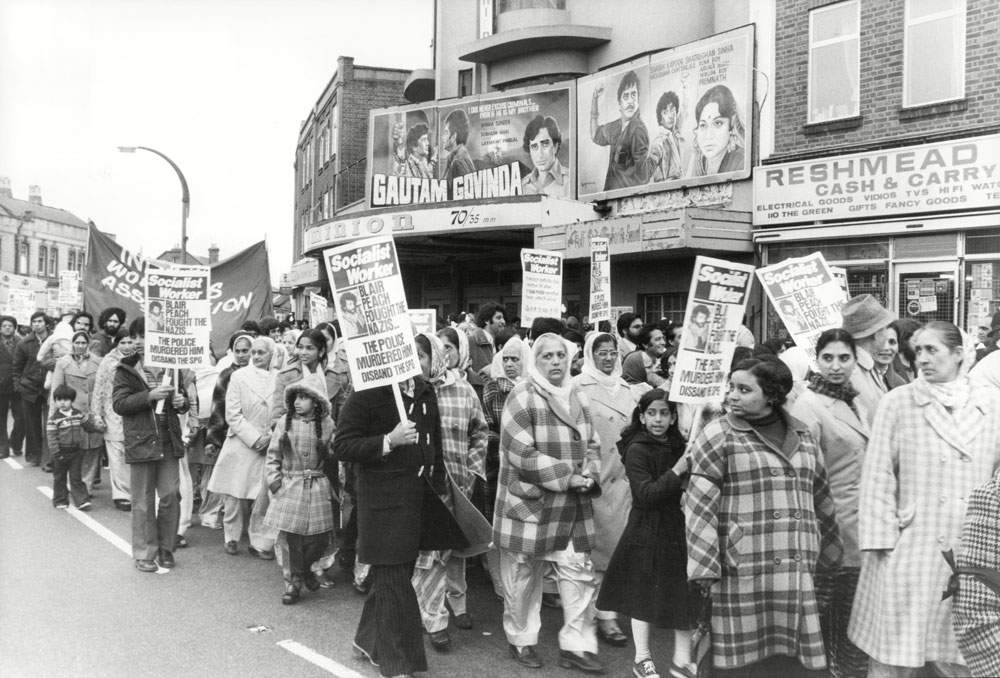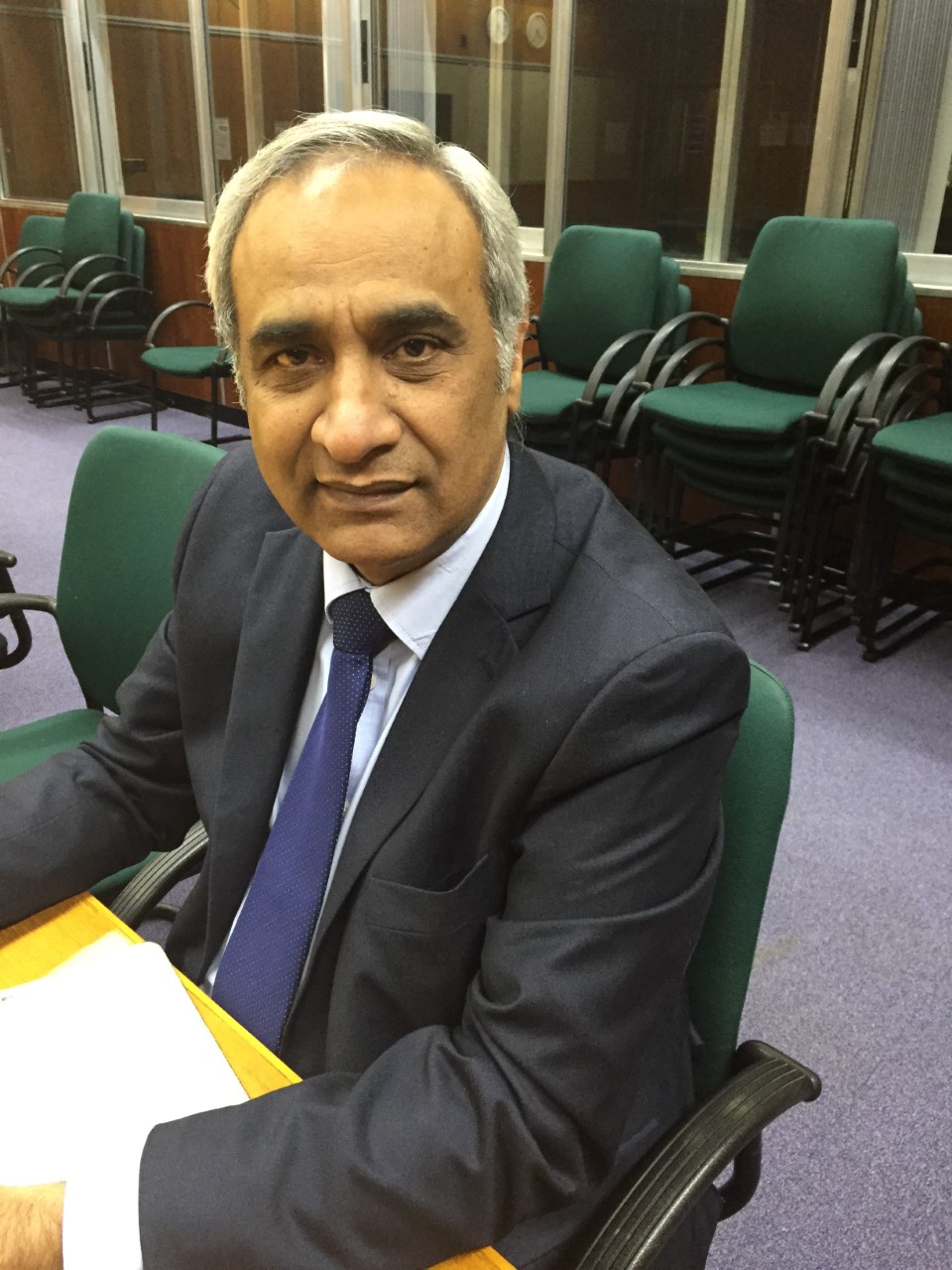REVIEW: The new Channel Four documentary series Defiance: Fighting the Far Right needed to be aired as a lot of youngsters are unaware of the struggles that British Asians and Blacks faced and how they stood up to the far right. The programme uses archive footage and newspaper headlines to bring the reality across to the audience. It is uncomfortable but necessary viewing.
The three-part series produced by Riz Ahmed and Rogan Productions showed key moments from 1976 to 1981 including the murders of Gurdip Chaggar, Altab Ali, Blair Peach, Parveen Khan and her children, as well as the Southall riots, the Battle for Brick Lane and the trial of Bradford 12.
In Episode 1 (‘One down, one million to go‘) examines the murder of Gurdip Chaggar outside the Victory Pub in Southall by White racists youths with the police denying that it was a racial attack or that there was any racial bias in the investigation. Five suspects were arrested resulting in three being convicted of manslaughter charges with the judge reconfirming the police stance that it was not a racist killing. John Read of the British National Party said the words: ‘One down, one million to go.’ The National Front was on the rise rising, stating: ‘Do you want the British to survive, or do you want this country to become occupied by a load of khaki-coloured, multiracial bastards?’ Incidents involving racists attacking Asians were characterised as ‘Paki bashing’. These were the experiences of young people in Southall and Brick Lane.
The youth of Southall, distrusting the police and community elders, formed the ‘Southall Youth Movement’. In Brick Lane, a young Bengali, Altab Ali was murdered by racists in Adler Street, E1, again the police were not willing to investigate properly, this led to suspects being arrested for very minor offences and sentences were overly lenient. The Bengali youths formed the ‘Bengali Youth Movement’. Young Asians were now joining forces to defend themselves.
Episode 2 (‘A killer in the ranks‘) examines the general elections of 1979. All political parties now wanted to end immigration because of the rise of the National Front and inflammatory words such as ‘floods’ and ‘swamp’ were increasingly used by the newspapers and politicians. The National Front, deliberately provocative, decided to have their meeting in Southall Town Hall in heart of the Asian community. Local people were incensed. The Special Patrol Group (SPG) were called in to police the event with support from the mounted branch and shield serials. Shops were closed at 1pm so that people could demonstrate with a sit-down protest, the Anti-Nazi league also attended. The police protected the National Front and unleashed violence on the Southall residents.
An anti-racist campaigner from New Zealand, Blair Peach was chased down Beachcroft Avenue and murdered with a lead weighted rubber cosh. The inquest jury later returned a verdict of death by misadventure. In total 342 people were arrested and charged by the police. Most being convicted just on the word of the police. Questions about police brutality arise.
The concluding episode (‘The right to fight‘) considered the National Front marching in Bradford as well as Walthamstow and Southall. Walthamstow was changing due to the expanding Asian community. The fire brigade had been called to a fire at 53 Belgrave Road, Walthamstow, E17 as a result of a fire which they discovered began because petrol had been squirted through their letterbox and ignited. Parveen Khan and her three children died of smoke inhalation. Her husband, Mohammad, managed to escape by jumping from the upstairs window suffering serious burns and injuries. Detective chief superintendent, Don Gibson, who investigated the case stated: ‘We have a man who escapes from a fire, and his children and his wife do not. How do you know he did not want to get rid of his wife, dissatisfied with her, fed up with the kids? I would never have left my children to die in the flames.’
Gibson claimed that there was no evidence of White on Asian attacks of this kind. Two days after the deaths of the Khan family, two hundred skinheads came to Southall in coach loads for a function at the Hambrough Tavern. They had attacked shopkeepers and women. Asian youths were prepared for them. The police protected the skinheads, but not for long, as missiles as well as petrol bombs were being thrown into the Hambrough Tavern. Police vehicles were burnt and the violence was far greater than ever seen. In Bradford, police discovered a cache of petrol bombs made from milk bottles, 12 youths, all members of the ‘United Black Youth League,’ were arrested and charged with conspiracy to cause explosions, conspiracy to cause grievous bodily harm and charges under the 1883 Explosives Act. The 12 stated that the petrol bombs were in preparation to defend themselves from an impending assault from the National Front. The jury acquitted them because they accepted that ‘Self-Defence is Defence’ argument – the case had set a precedent in the UK for self-defence.
Progress was made and is still being made thanks to the bravery of people from minority communities across the United Kingdom who chose different avenues to fight racism. There are many that are not recognized. We have come a long way since the ‘P’, ‘W’ and ‘N’ words were used casually in classrooms, workplaces, television and by those in authority. The documentary shows many young people were willing to challenge racists and those in authority and they were not going to take it laying down. Rights were fought for by the minority groups not given due to goodwill of the majority.
Defiance is still available online to view on Channel 4.
Gurpal Virdi grew up in Southall, witnessed the events, he joined the police to fight racism from the inside. He now gives talks to various groups on racism and inequality







